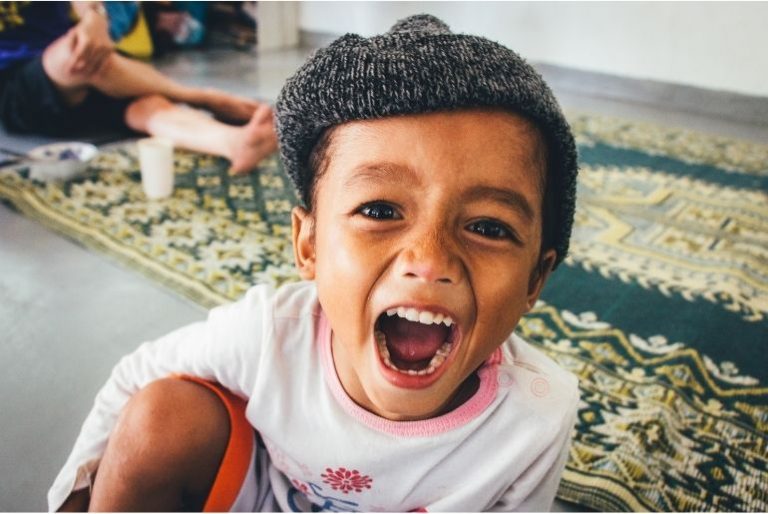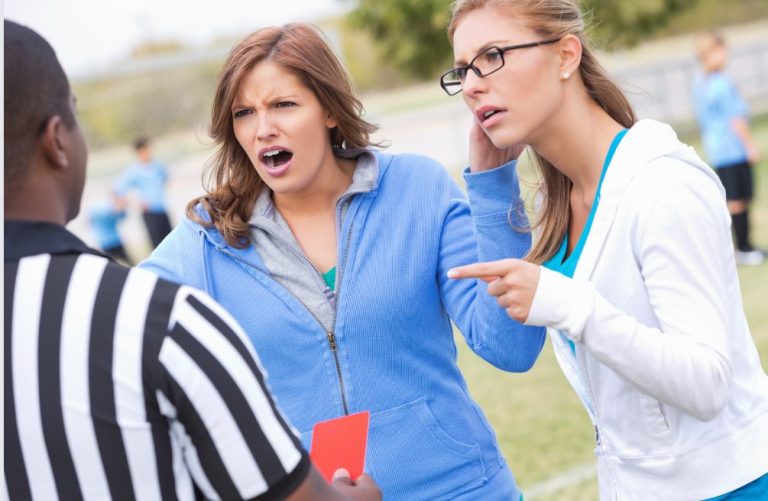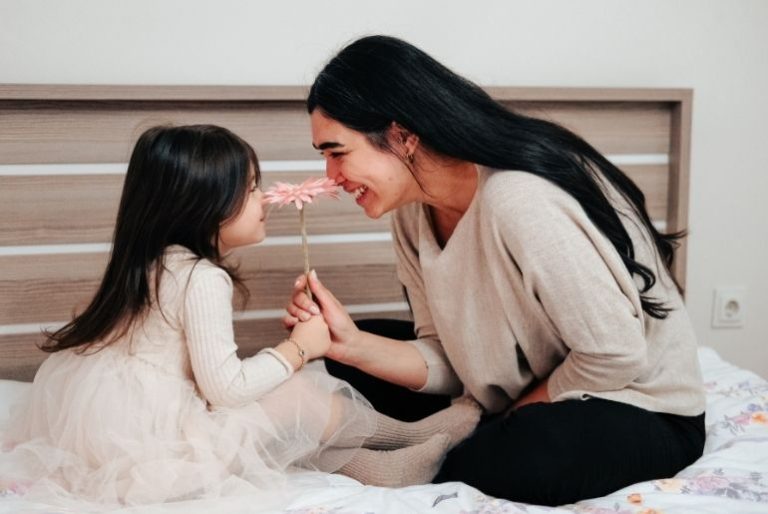Shirley Pastiroff, Counsellor at Renew your Mind, Mindful Parent trainer, and mum of 5, talks mindfulness parenting and our kids’ emotions, and introduces the Mirror-Link-Pause, or MLP technique.
As parents we’re bombarded with ideas and imagery on a daily basis, depending on what we read, listen to or look at, that offer us suggestions on how to become better parents than we currently are.
It’s a fascinating journey for us to navigate as much of the material we come across is written, recorded or photographed with skill and care, with the intention to inspire and encourage. But the parenting input we absorb can also cause us to feel overwhelmed as we try to be calm parents who produce free-spirited, creative little humans who do what we say and keep their rooms tidy.
Having just released my first book, The Mindful Parent, into the soup of parenting possibilities out there, I am now part of that world of input and so want to make sure the words and ideas I use bring freedom and a sense of relief, rather than heavy expectations or impossible goals.
I know that words conjure up images, and even the word ‘mindful’ can conjure up serene homes, calm parents, maybe even summers exploring the beach, winters playing board games, and kids who don’t really behave like kids at all. Fortunately, it doesn’t mean anything like this.
Let’s talk mindfulness, parenting and our kids’ emotions
Mindful parenting is simpler, maybe less exciting, not something we have to strain for, as if we don’t have enough stress in our lives, but within our grasp, in our everyday lives.
To be mindful simply means to be alive and present to the present moment, whatever that moment contains.
To be a mindful parent means to be aware of ourselves and our mood, stress levels and state rather than to be focussing on our kids and their behaviour, or state.
As mindfulness is the skill of being present to our lived experience, that means being able to stay present in our challenging moments as well as our enjoyable ones. One really common area of parenting that tips many of us out of a calm state and into a reactive one, is the baffling range and intensity of our kids’ emotions. But it truly is possible to take a very different approach.
It may be a stretch, but I want you to imagine just being present with your child without attempting to change them when they’re weeping with loss and frustration because it’s bedtime, or raging at the injustice of losing a game, or irrationally terrified at the thought of trying something new.
If you can, you’re beginning to sense the power of mindfulness in your body. This ability to stay in the moment as it is, rather than responding to the inexorable pull inside us to try and fix or solve whatever feels uncomfortable, is a key component of what mindful parenting is all about.
I learnt this the hard way, having spent years trying to suppress or fix my own and my children’s trickier emotions, as if somehow they were getting in the way of our real lives.
It sounded something like this:
“Seriously sweetheart – CALM DOWN!!!!!”
“It doesn’t taste ANY different in a blue cup….”
“Oh my goodness, could you just say ‘ok mum’ when it’s time to leave!”
“Don’t throw it at her, honey, take turns NICELY!!!”
“In our family we DON’T SHOUT!!…”
This may not sound like you at all, but from years of working with parents, I know the desire to intervene and change these emotions, can be its own sweet rollercoaster ride.
Understanding that emotions are crucial to a healthy life, and that we don’t have to prevent them, is only helpful if it comes with practical strategies, otherwise we end up at the other end of the spectrum and chaos replaces control. We need tools and techniques to help us stay present with our children in these moments, and even to help them learn to regulate their feelings themselves.
One of the strategies I have found the most transformational in my own life, and in the homes and lives of many of the families I’ve worked with, is called Mirror-Link-Pause (MLP) – think My Little Pony.
The Mirror-Link-Pause or MLP technique
MIRROR
When our kids are having a difficult emotion, we can just start with recognising or mirroring it:
“It looks like you’re terrified ….. upset …. really sore …..mad at me….”
LINK
Then we validate, or link it to what we guess might be the reason:
“That makes so much sense, it’s cross-country…. he’s your best friend…. that’s the same knee you bruised last week…. you love screen time.”
The link has heaps of energy in it. It’s not an attempt to calm the situation down, but to see if we can skilfully stand in our children’s shoes.
PAUSE
And then we take a breath, we pause and see what happens. No ‘….but’ – that’s the hardest part for us parents! No need to try and fix, solve or change anything about the life being expressed in front of you.
Maybe a gentle look or a sigh to make sure our kid knows we’re not leaving them in the lurch to sort themselves out, but just offering our support rather than our disapproval or our well-meaning solutions.
Often, they just move on. They had an emotion, it was acknowledged, but not fixed and that’s all they need.
Have some fun with it: “Look at your knee – we might need to call the ambulance!”, “Only 7 hours on the iPad today, that sucks!”, “Vegetables/blue plates/girls should be banned!” etc….
MLP isn’t a magic wand, it doesn’t produce a sudden zen-like calm in every situation, but it does work so often that it leaves us with heaps more energy for the emotions that get stuck, or turn into tricky behaviours that need more involvement on our part.
But two things always change when we use MLP.
The first is that our children are learning the names of emotions as we describe them (the mirror), they’re learning that their feelings are valid (the link), and they’re learning that they can process their own emotions with our supportive presence (the pause), which over time leads to emotional intelligence, resilience and of course vitality.
For us as parents it offers us life and energy in a very different way. Instead of losing energy each time our kids ramp up, disagree or get upset, by reacting either with displeasure or with a desire to fix the situation, we start to feel quite neutral. It’s normal to have emotions expressed, and to care for the person having the emotion, but with true healthy distance. That leaves much more room for us to live our own lives, not just as parents but as people too.
Of course, summer days racing around on the beach, when everyone is loving each other well and having a blissful time are the ones we’d all love to have, or days when our homes are calm, creative and conflict-free. But a mindful home is when the everyday collisions, carnage and emotional expressiveness are ok, not as enjoyable as the easy days, but fine, normal and we can even be mindfully present while it’s all happening. It’s the perspective shift that mindful presence can bring to each moment of our lives.
For more great mindfulness tips, check out Renew Your Mind‘s resources, and for more expert advice on different parenting techniques, tips and traps, check out our Parenting advice & tips section. Or check out the book now:
Endorsements
“This is one of those rare books which takes an incredibly complex but hugely important subject and turns that into simple tools we can all understand and apply. If you sometimes struggle to be the kind of parent you want to be… this book is an absolute must.” — Nigel Latta, clinical psychologist, author & speaker
“I am frequently asked how on earth we can raise resilient and happy children in the over-scheduled and busy world we live in today. The answer is Mindful Parenting. Here, Shirley Pastiroff outlines simple and effective practices that are loaded with meaning and power and serve to achieve exactly that — happy and resilient relationships. Her practical and down to earth style makes this easily achievable for parents.” — Nathan Wallis, neuroscience educator
“A brilliant book. The increase in peace and co-operation in our home is sensational. The tools in this book helped me trust myself more and support my children to process their difficult emotions and come out the other side able to think and act in healthy ways. I’m pleased to report there is less losing of my s#*t.”— Petra Bagust, broadcaster & communicator







